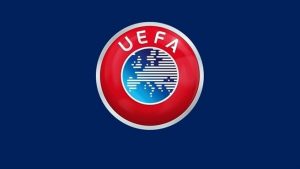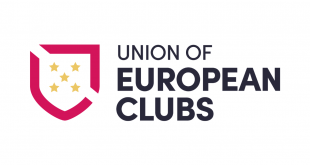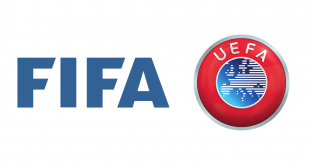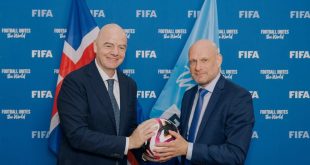 UEFA recently staged a two-day seminar for more than 50 doping control officers (DCOs) as part of the organisation’s continued training programme, which ensures the highest level of anti-doping procedures in European sport.
UEFA recently staged a two-day seminar for more than 50 doping control officers (DCOs) as part of the organisation’s continued training programme, which ensures the highest level of anti-doping procedures in European sport.
Responsible for conducting all matchday and out-of-competition testing, DCOs are a central cog in the delivery of UEFA’s anti-doping strategy and an important link between European football’s governing body and the thousands of players who provide blood or urine samples each season.
As well as travelling to matches and training centres throughout the season, DCOs are required to be familiar with the regularly updated list of banned substances as well as the latest developments in the anti-doping sector. They also play an important educational role in making players, clubs and national associations aware of the dangers of doping and the importance of clean sport.
The forum followed recent anti-doping events in which UEFA plays a key role, including WADA’s annual symposium, the Council of Europe’s cross-sport anti-doping workshop and UEFA’s own medical symposium, which took place in January.
Angelo Rigopoulous, UEFA managing director of integrity and regulatory, said, “UEFA has always invested a lot when it comes to anti-doping, not only, but particularly in education, of both players and our DCOs.”
“The DCO role is very important. After the 90 minutes on the pitch, they are the first UEFA official the players meet, and so they have a very important role to perform with the highest duty of care.”
United for the future
Throughout the seminar, which involved 53 DCOs at UEFA HQ in Switzerland, the governing body’s anti-doping unit and guest speakers conducted a variety of practical sessions, presentations and exams.
Designed to further the expertise of attendees and encourage them to learn from each other’s experiences, the sessions also fostered a sense of unity and teamwork as the group looked ahead to future challenges, which include UEFA EURO 2024 and a new club competition system that starts next summer.
With such developments on the horizon, retention and recruitment of DCOs is crucial to UEFA’s anti-doping programme. Candidates must meet key criteria to be considered for the role, including being a qualified medical doctor with proficiency in English and some prior experience of anti-doping practices.
Five DCO candidates were present at the recent seminar, who to finalise their qualifications are required to complete observation and evaluation missions at forthcoming UEFA matches.
CONMEBOL collaboration
As part of the event, Dr Osvaldo Pangrazio, CONMEBOL anti-doping director, took the opportunity to introduce his team and showcase CONMEBOL’s advancements in their anti-doping programme, highlighting the department’s impressive progress in recent seasons.
UEFA and CONMEBOL’s teams have worked closely together over the past year, exchanging experiences and best practice, as well as successfully implementing anti-doping controls at various competitions in both Europe and South America, including the men’s and women’s Finalissima, Futsal Finalissima and the Intercontinental U20 tournament.
This collaborative effort demonstrates a shared commitment to promoting fair play and integrity in sports.
 Arunava about Football A look at football & the world through my eyes!
Arunava about Football A look at football & the world through my eyes!



